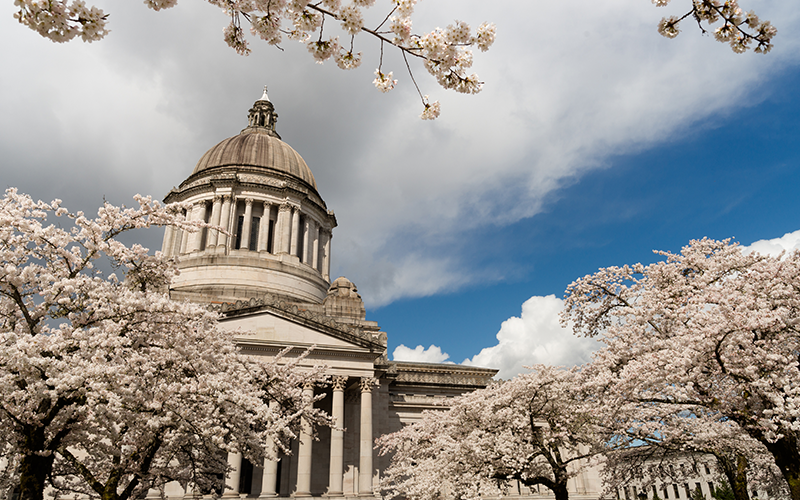The Freedom Foundation and opponents of Washington’s new capital gains tax fired the first live volleys of the struggle on Feb. 3.
After months of confusing motions and legal wrangling, the legislation was finally debated on its merits in the courtroom of Douglas County Superior Court Judge Brian Huber.
The opponents’ primary argument was that this is just one more attempt to impose a progressive income tax on state residents who’ve emphatically and repeatedly rejected similar schemes for almost a century.
In simple terms, a tax can either be an income tax or an excise tax, but not both. Because this one simply doesn’t look, walk or quack like an excise tax, it’s clearly an income tax trying to circumvent language in the Washington State Constitution prohibiting the unequal collection of income taxes.
Washington courts have consistently ruled that income is property, and the Constitution requires property taxes be levied at the same rate for all similar property (which this one unquestionably does not, exempting taxing gains below a specified threshold).
Consequently, this legislation is unconstitutional for the same reason previous versions have always failed.
Backers of the tax couldn’t even get their stories straight. Solicitor General Noah Purcell repeatedly sought to divide Washington residents, arguing this tax only affected the “ultra-wealthy.” But the attorney for intervening supporters denied it was an integral component of a larger “class warfare” battle.
Although the state tried to claim this was merely an excise tax on the “privilege” of selling a capital asset, opponents countered that the state conferred no such privilege.
In addition, an excise tax normally would be due immediately on the sale of the asset, not after the end of the year when all asset sales would be added together.
This tax applies just on the gain, not the full value of the asset. Nor can the person liable for the tax pass along the cost to the customer, such as a gas station may make the customer pay the tax on gasoline.
Lastly, this tax is based strictly on the person’s federal income tax return which, by definition, taxes … wait for it … income.
The tax is unconstitutional also because the state taxes gains on sales even outside its borders. Washington lacks jurisdiction to tax gains on real property outside the state, and while “intangible” out-of-state property may be taxed if the person resides within Washington, the structure of this tax violates numerous constitutional requirements.
In the Feb. 3 hearing, Judge Huber asked very few questions. His most pointed query was whether, if he concluded the tentacles of this tax extend beyond Washington, could he strike down only that part?
The state suggested he could, but opponents noted that doing so would require him to rewrite the statute, which only the Legislature can do.
This happened when the courts struck down the state’s original state business and occupation tax and it was subsequently fixed by the Legislature to conform with the constitution.
Similarly, when Huber asked if he had to either give the entire statute a thumbs up or down, opponents noted he would have to either strike the whole statute as an income tax or somehow conclude it was not.
The measure’s supporters gave the game away by arguing the state’s taxes are “incredibly regressive,” meaning individuals who save money rather than paying sales tax on buying everything they can afford surrender a larger percentage of their income in taxes.
What this requires is a graduated income tax, one that penalizes success rather than encouraging it. Such convoluted thinking is exactly what Washington’s leftists want, even if their plan is vehemently opposed by the people of this state and clearly violates its constitution.
The Freedom Foundation is committed to seeing this legal battle through to the end.











